Chuck, the Anti-Spy
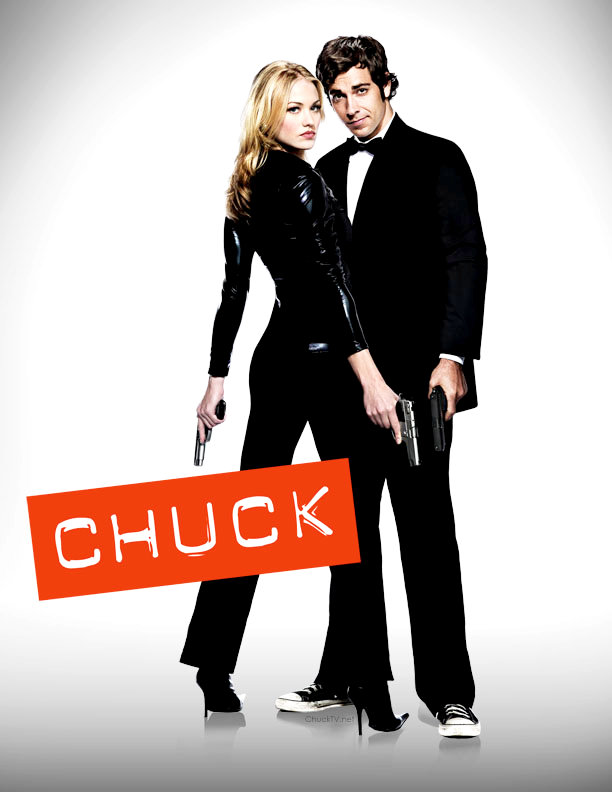
Chuck premiered on September 24th in 2007 and aired its last episode on January 27th 2012, ending a long-fought battle by fans to renew its production season after season. The TV show follows the adventures of Chuck Bartowski, a seemingly ordinary IT guy thrust into the life of a spy after absorbing all the secret information of The Intersect database. What seems like a random twist of fate slowly reveals itself as the result of complicated past events, all steering Chuck toward espionage.
The continued production of Chuck was in question after the first two seasons, so this article will examine them and their construction of what it means to be a spy. The show doesn’t make the distinction between being a good spy and being a good person easy to understand. Although the two are not mutually exclusive, Chuck in many ways poses that the more spy-like a character becomes (deceptive and violent), the farther they slip from being a decent person. In those starting seasons, the series guides viewers into favoring the journey characters like Sarah and Casey take to reclaim normalcy in caring for others, and dislike espionage in general as it separates Chuck from his loved ones. This theme however, is not flawless, and the inconsistencies in the presentation of spies as undesirable people may give insight why the show was threatened with cancellation.
Sarah Walker
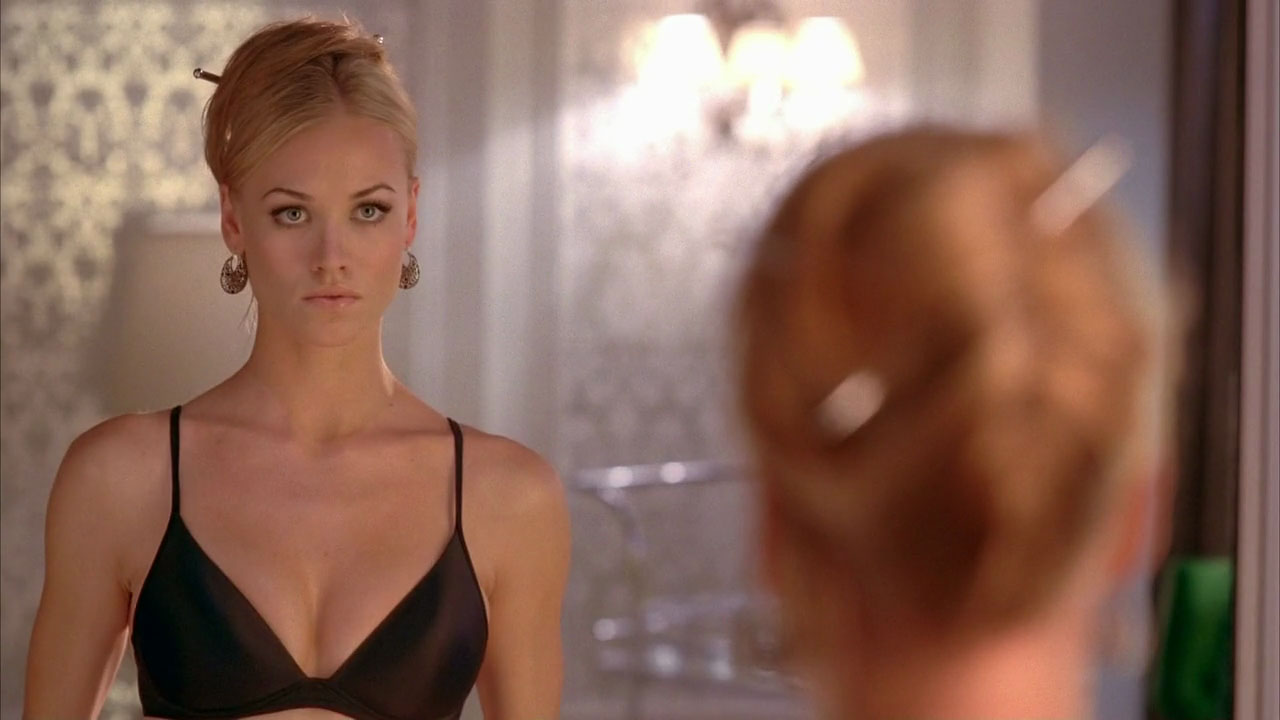
Sarah Walker is arguably the most versatile spy in the main cast trio. She can act a wide range of personas, is multilingual, and kicks enemy butt. What stops her from being the perfect spy—someone who always get the job done without a hitch—is her heart of gold.
In ‘Pilot’ Sarah’s first mission is to seduce Chuck and recover The Intersect’s secrets for the CIA. Despite her deceptive cover, Sarah shows the capacity to sympathize with others. Once Sarah realized the Intersect lives solely in Chuck’s head, she doesn’t want Chuck to be ripped from his family and forced to live in a government secret base, so she suggests he work for the CIA instead. Although it is a temporary convenience for the CIA to have access to information through him, Chuck is nevertheless a liability any true hardened spy would eliminate immediately; someone like John Casey.
John Casey
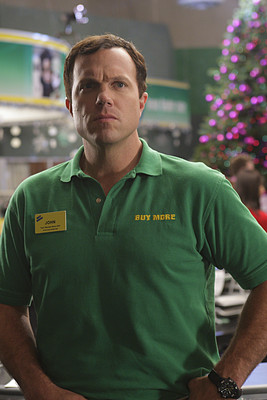
“Chuck vs. The Crown Vic”
John Casey is the NSA spy assigned to watch over Chuck with Sarah to ensure his organization’s secrets are kept safe. Casey relies primarily on physical skills to get an assignement done (whereas Sarah uses deception and stealth to avoid violence if possible). Casey shows little pleasure aside from beating others and expresses a strong patriotism.
In ‘Pilot’ Casey is comically hostile. While trying to gain possession of Chuck, Sarah puts Casey in the classic ‘if I can’t have Chuck, nobody can’ situation, to which Casey replies: “You shoot him, I shoot you. I leave both your bodies here and go out for a late snack. I’m thinking maybe pancakes” (Fedack). Casey shows preference for the quick elimination of any liabilities with no remorse or hesitation.
However cold Casey appears in his introduction, he eventually grows fond of Chuck and by the end of season one proves that he would be incapable of (or at least upset about) killing him. In ‘Chuck Versus the First Date’ once Casey is ordered by the NSA to terminate Chuck, Casey can’t shoot Chuck’s picture as target practice anymore—the reality of the situation hits home, and Casey realizes his attachment to Chuck.
Chuck Bartowski
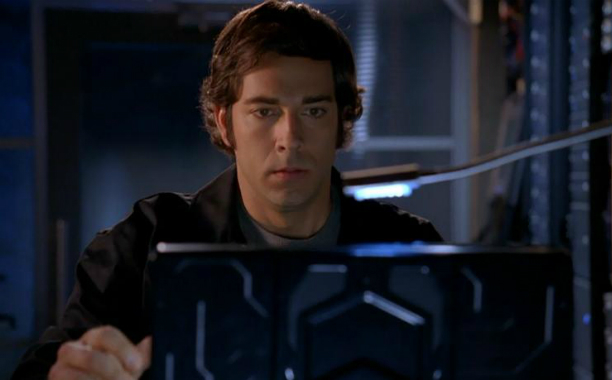
Chuck’s appeal was in his quirkiness and loyalty but as he becomes more involved with spy organizations, he starts to disappoint his friend and family. In ‘Pilot Chuck asks, “Why me? I’m nobody. I’m the supervisor of a Nerd Herd at a Buy More” (Fedack). Chuck in the first season shows proficiency for amateur luck. Chuck is only useful as a spy because he is so unable to hide his humanity and often changes the heart of— or at least confuses— the enemies. Chuck admits his incapability as an efficient spy after being conflicted by his emotions for Jill: “I wasn’t ready for this mission… I’m too trusting… I’m just getting used to this new job—all the spying and lying” (Fedack). All Chuck has going for him in the field is the Intersect’s information and his boyish charm.
Viewers continue to endorse Chuck’s relationship with Sarah because she supports his innocence by saying, “What makes you special is that you’re not like every other spy. You’re a good guy, and you want to help people. Leave the deception to me” (Fedack). Sarah is willing to take on the burden of being an emotionless spy during cases to preserve Chuck’s naivety, even though Chuck continues to want more out of himself.

Chuck constantly comes close to wrecking his relationship with friends and family because of his involvement as a spy. In the season two finale, although he manages a quick-fix of the situation, Chuck nevertheless unintentionally ruined his sister’s wedding. Where the show uses Sarah and Casey to promote the redemption of spies who choose to care about others over their job, Chuck himself is used to show the incompatibility of pursuing being a spy and maintaining a normal life.
Jill
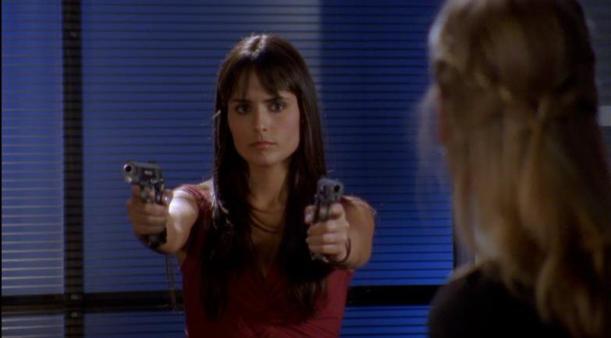
Jill’s representation in the show prompted this article because it doesn’t follow the aforementioned narrative themes. If viewers are meant to love Sarah who starts as an empathetic character and like Casey who becomes sympathetic over time, they should theoretically hate Jill for seeming apathetic to Chuck’s wants. The key word here being ‘seems’. Plus, on principle, viewers get defensive of any character trying to steal Chuck’s heart away from Sarah, when Jill had already broken it in the past. Jill’s presence in the show is felt even before her on-screen appearance, as the ex that left Chuck emotionally devastated.
Jill as it just so happens, is a spy part of Fulcrum, an organization trying to steal the Intersect’s secrets—aka, the bad guys.
After a long series of events and betrayal, in ‘Chuck vs the Gravitron’, Jill confesses her wish to leave the spy life behind and run away with Chuck. Trying to escape a hostile scene between the two opposing factions Jill begs, “We can still be together… Come with me Chuck” (Fedack). Chuck, however torn by his attraction to Jill, arrests her and says, “I was going you let you get away… But when you were about to kill Sarah, you made the decision for me” (Fedack).
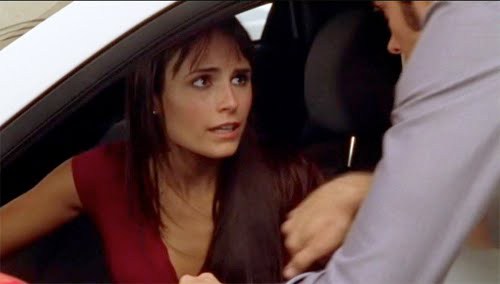
This scene is far more significant than the love-triangle plot. Sarah openly opposed killing Jill in fear of emotionally damaging Chuck, and although Jill seemed ready to shoot Sarah regardless of Chuck’s feelings… Jill did not. Jill chose an emotional response over a calculated one (the appropriate response for a spy) but Chuck still punishes her. Jill, although picking the right path in the end, is condemned for taking too long to choose it—or at least, fostering doubt over her true intentions. Because Jill hesitated and came closest of all the spies mentioned in this article thus far to putting her job before Chuck, she becomes a scapegoat (arrested and locked away).
Only main characters who convincingly show capacity for emotion over their job as a spy are promoted to viewers. All ‘real spies’, cold and efficient—as one would expect a spy to be—are seen as the enemies. Because a good spy doesn’t have or show emotions, there is no way to flesh them out as characters or redeem them as humans; there would be no point.
Although Jill’s sincerity is questionable, Chuck’s ability to forgive her as opposed to other characters who continuously practice deception, is very telling. Having viewers follow through Chuck’s experiences limits their ability to judge for themselves who can and cannot be exempt by the rules of condemning heartlessness. Is this narrative of overcoming the emotionless requirements of the spy occupation constructed by the people he forms relationships with, or is it shown through the development of Chuck himself? Is Chuck unable to forgive Jill because he is becoming more like a spy and closing off his heart?
Family and Friend Spies?
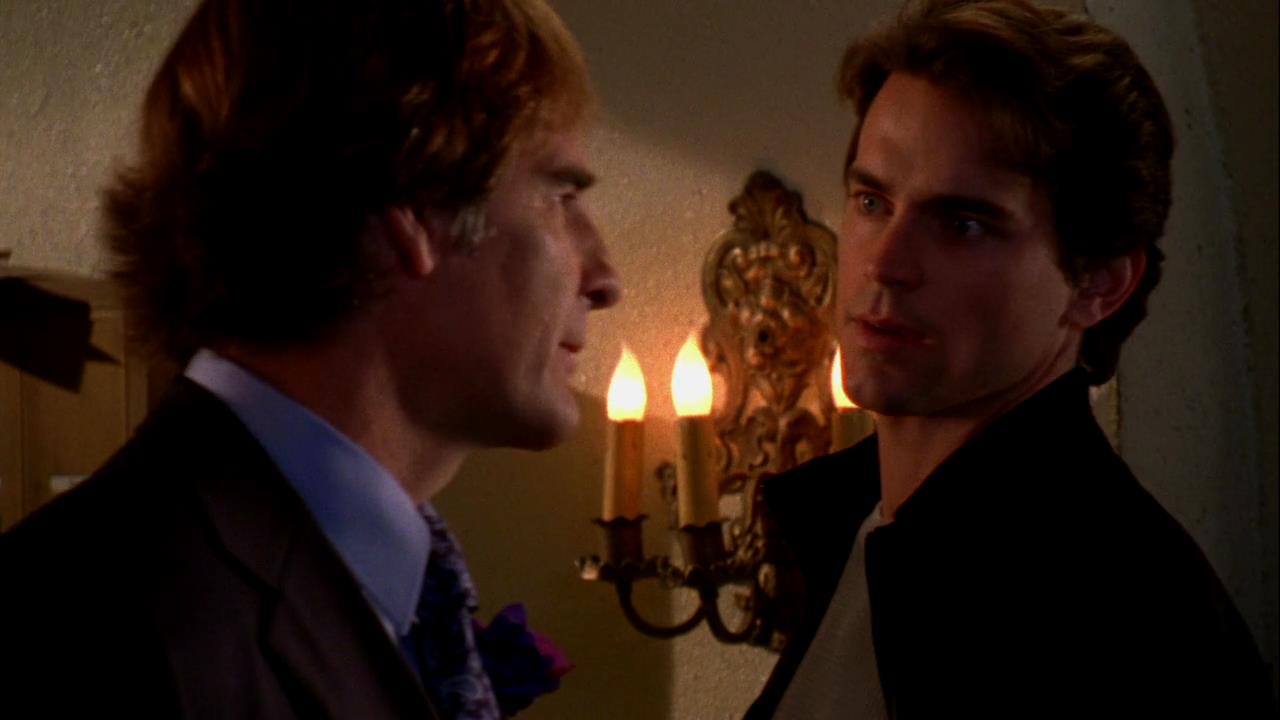
What would normally be a clear-cut distinction between bad guys and good spies becomes unclear when looking at the few second-tier spy characters. Bryce Larkin is forgiven for getting Chuck kicked out of university framed as a cheater, under the explanation that it was the only way he knew how to keep Chuck away from their professor recruiting spy candidates. Chuck’s father was absent from their family life for years under the same pretext—keeping Chuck safe while also emotionally damaging him to do so. Because Chuck picks and chooses who he finds forgivable and viewers follow the show mostly through his perspective, it’s hard to draw a line on what defines a bad person but a good spy, a bad spy but a good person, and ultimately asks whether anyone can be a good spy AND a good person?
Are All Spies Bad?
In the finale of season 2, when a leader of Fulcrum is defeated, a new unnamed threat presents itself. There are inside/double agents abound. Sarah asks the villains who they are, to which a man replies, “Spies, Agent Walker. The Best.” The show leaves viewers with this. Spies are posed as the bad influences in the story. Throughout the two seasons, the act of being effectively spy-like is framed as the true problem Chuck and his friends are facing; They are fighting to maintain their humanity, not just stop the bad guys.
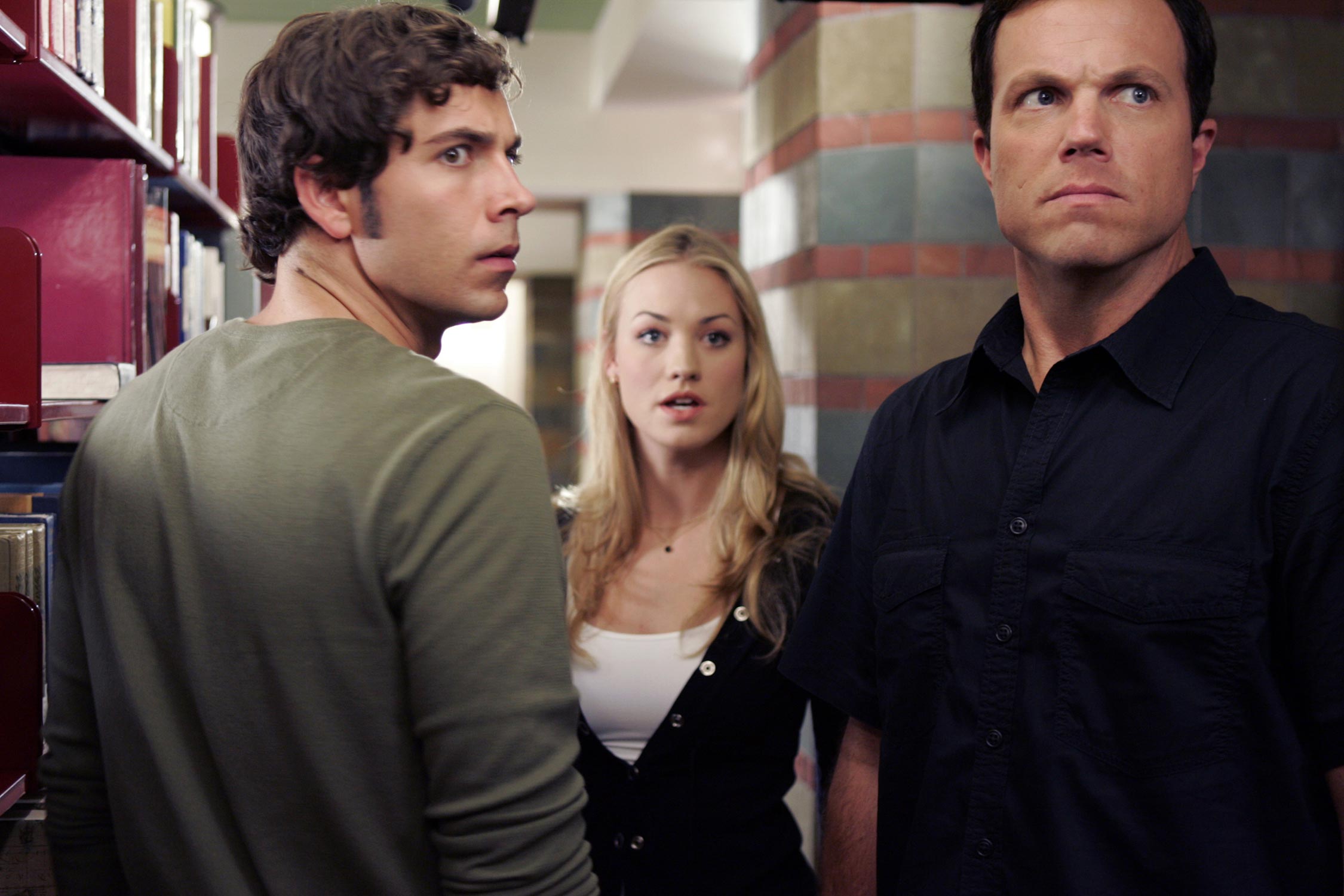
Finale
The theme of conflict between being a successful spy and a moral person is prominent, however, the last scene of Season Two is Chuck’s shocked face at being grafted into a ‘perfect spy’ (physically and intellectually by the Intersect 2.0). Chuck discretely perpetuates a dislike for hardened spies and puts value in Chuck and his friends who try to cling to their compassion, but left viewers dangling after the Season Two finale; unsure what this new development would mean in terms of that theme. If Chuck chose to continue as a spy there was no doubt it would result in the collapse of his relationships. Would Chuck pursue the lifestyle and forsake himself, or would the show continue to blur the line of acceptability with exceptions?
Chuck in the early seasons succeeds as a spy because he is an anti-James Bond, but now with the uncontrollable physical skills of a Bond, he has little-to-no way of escaping his destiny. Was this twist in tropes what threatened to end the show’s production, or what kept fans dedicated enough to fight for its return?
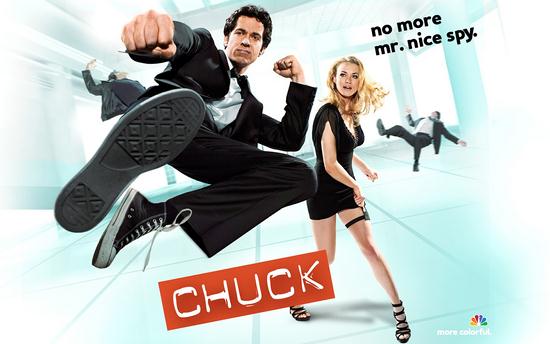
What do you think? Leave a comment.











I have been pissed about the ending, still am to this day, I really loved how the ending sort of came full circle for Chuck. Starting off the series he was a typical quirky socially awkward nerd and grew into such a strong mature sure of himself man while still retaining the warmth of character we knew him for the run of the show.
I remember watching the episode and remember thinking at the time watching Chuck give Sarah that talk on the beach spoke volumes as it was so sincere and profound and something I couldn’t see the Chuck of the pilot doing and was a testement to how far he had come since then.
I still wished there was some closure to the show such an open ending but given Yvonne is on Handmaid’s Tale and Zach has pretty much dropped of the grid all one can do is hope.
He hasn’t. He’s on Tangled The Series and has a mini-series on Netflix.
Funny you mention that, Zach did an interview at SDCC where he said a Chuck movie is very very very very very (times infinity) early on in production. It could happen one day.
Bookmarking this to re-read after the next re-watch. Thank you.
I hope you enjoy the re-watch as much as the first viewing! I definitely enjoyed my re-watch of Chuck but I still haven’t finished the show in its entirety. Cheers.
Great article, Slaidey! CHUCK remains one of my favorite all time shows!
Thanks! It’s nice to see that other people remember the show. I always felt like the odd one out bringing it up to others haha.
Was bothered me with the final is that “Old sarah” wasn’t well done in my opinion. She wouldn’t have trusted the guy that easily, no matter the proof he showed her (hardly enough, even the video of herself) which shouldn’t have been enough for her to just trust and go on his errand. Especially considering who Sarah was. That bit alone would have needed an arc of several episode for it to make sense within Sarah’s character in my opinion. And that’s the part I really didn’t like. Not even the fact they partly destroy all of her character development just the fact it wasn’t done well enough.
I stumbled upon this gem 4 years back and binge watched the first three seasons in less than 2 weeks. This show is so very creative and never truly got the chance to be successful.
For someone who had such limited access to television channels it is surprising I found Chuck while other’s didn’t. Chuck was a cute feel-good action comedy and it’s odd that it never kicked off to the level it could have.
I watched the last 3 episodes, and not only did they make all the episodes before useless, no, they ruined the show completely. The “Friends” story, lost. The family story, lost. The love story, lost. I’ve seen a lot of show, but never seen a worse show ending.
It seems like a lot of people feel upset about the show ending. Addressing that could be another article in itself. I’d definitely be interested in an analysis not just of those last few episodes, but also meta commentary from actors and directors on why they made those choices.
Thanks you Chuck for colouring my days.
Despite some of the serious content, Chuck was always a fun thing to watch!
Thank you for the memories. I love Chuck, the character. He had such an incredible growth in the run of this series. He went from shy nerd to a spy badass who took down three evil organizations and defeated villains.
What I loved most about this character is that they never forgot he’s a genius, that once he got the Intersect they didn’t throw away the skills he had even before he had the computer like another current show has forgotten a character’s computer skills which I won ‘t mention. I mean in the Season 4 Mid-Season Finale Chuck didn’t even use the Intersect in skills, only information and he STILL defeated Volkoff!
It shows that they never forgot the core of the character.
Now there’s some things I wasn’t a big fan of. The show always, since Season 1 made a point in saying Chuck was special, that he was the ONLY one capable of handling the Intersect, Fulcrum scientists were gobsmacked he survived the Dark Intersect! The Professor at Stanford was shocked at the amount of information Chuck could retain! Then they threw that notion away by having everyone and their uncle be able to do the same, handle the Intersect. No to mention the “glitches”. There’s also that disgusting Season 3 arc with Shaw, they had Sarah say her real name to him! That was a slap in the face of fans.
I didn’t like them turning Vivian evil for the sake of giving Chuck an “arch-enemy”, SHAW was his arch-enemy, in a very literal sense. At least they fixed Vivian.
I liked that when the Intersect was gone they didn’t take away his fighting skills, we never knew how Chuck was still able to fight so well, we can only assume he trained with Sarah and Casey, he even mentioned Sarah trained him. He was an excellent fighter to the point where he was able to stop moves from the Intersect Morgan had, that was impossible.
The show also never shied away from giving Chuck a bit of dark moments, him burning an asset, lying so well to Ellie where Devon himself was a bit taken aback. It was so well-done and I still want the last story they screwed up, destroying Sarah Bartowski to be fixed.
The show jumbled around its mythology a lot. There was a lot of retconning and changing story elements to the point where I am not a hundred percent sure of the exact working of the intersect and Chuck. But I do always appreciate how well they developed Chuck. I think the first half of season 3 was a bit of a wreck, tonally but I did love how Chuck matured gradually throughout the series from being a nerdy boy to a matured man who was a first class spy. But not only him, I felt they did a great job with Sarah until those final episodes. Her going from the hardened assassin to the conflicted woman who was unwillingly falling in love to the kickass wife who wanted to settle down and have a family of her own. Similarly with Casey. They charted a nice path for him where he grew softer without ever losing his Casey-ness. In general, I loved all the characters in the show even when the plot development was very inconsistent.
Totally agree. The development for the Intersect itself wasn’t always there, but for the characters it absolutely was. This show reminds me so much of POI.
You bring up some great points here. Happy to say that we see eye to eye on this.
Your article makes me want to pull out my Blu-rays and watch my favorite episodes again!
Chuck, that was something. Close to a perfect hybrid of procedural and serial of drama and comedy, of action and thoughts.
Just an excellent show with an excellent lead.
Great writeup on Chuck! I will always hate the series finale though.
Thanks! Yeah, the finale seems to have been very polarizing among fans.
Shared this. I want to show this article to my mom and sisters, they also saw Chuck.
Well thank you, I hope they like it too!
I should like Chuck, as I loved The O.C and Gossip Girl, and have watched them over and over. This however, just plain annoys me.
Chuck the Anti-Spy sounds like a great old show. Unfortunately, I never did get to see it. Maybe I should so searching for some old blue ray stores and watch a few episodes.
It would have been nice to get a few more seasons but I’m glad it didn’t get less.
Chuck is an amazing show and character, and it absolutely warrants a rewatch!
Chuck really was a great show with a great lead character. But the best thing is that he kind of stayed the same in a way, from this lovable nerd who neutralised a bomb with a porn virus to a lovable nerd who neutralised a bomb with a porn virus. Just with a little extra. At heart Chuck is the same guy. He grew and learned of course and, you know, became a spy but Chuck is still Chuck.
Brings back so many fond memories of one of my favorite shows and a character that I empathized with, from the start.
I dont know what to watch without chuck! 😀
Great discussion and nice break down of the different characters. This was a good show with a unique premise that seemed to resonate well with its views. I too enjoyed this show.
I felt a feeling of bonding with each of the characters. I would love to rewatch all of it again soon.
Incredible thoughts about Chuck. I miss this show.
Chuck began as a show that parodied other spies, but ended as a one of those spy shows. It was a very odd turn around, but the natural progression isn’t rushed during the show. The characters slowly developed into more polished, and professional characters. However, this also took away some of the charm from the show that dedicated viewers had grown to love and defend.
Personally, I enjoyed the earlier seasons the most because it was a show with a clear purpose, but it became watered down and characters began to lose sight of themselves. The ending disappointed me because it only reinforced the fact that it had become a spy show and not a comedy that parodied spy shows.
Chuck was a really great t.v. show and I feel that the first two seasons are some of my favorite seasons/years of any t.v. show.
Great article!
No series can compete with this.
There’s just something about this show. It’s really believable and relatable.
I think Chuck was a nice transition from the sorts of shows 90s kids watched involving spies, where the struggle to keep his secret and normal life separate is a constant battle that comes into play nearly every episode. Chuck’s friends and family are genuinely affected by his job and Chuck has to deal with those implications, which feels very relatable.
I remember watching Chuck after school with my father, it was something we could bond over and enjoy. It is probably something that would be interesting to go back and rewatch, especially from a media studies vantage – but that ending was very indecisive! Obviously hearing the cast and production members talk about why it makes sense, but there’s still an element of disappointment whenever I think about it!
This show was amazing in that it brought a lighter side to the spy world , or in my opinion it did. There was a lot of humour in the show that I think helped keep it from going super dark and helped made the characters so loveable. Great analysis of the characters!
My family watched Chuck from the beginning, and all of the questions explored in this article get so messy after season 2. I have to re-watch this show; it was such a big part of my growing up watching it as a teenager with my parents!
In the age of Netflix & Co. it is really amazing to see people (re)discover such ‘easy-viewing’ comedy gems even long after they were taken off the air.
I agree, it really is a neat phenomena of rediscovery. I’ve found myself going back to older shows more and more as Netflix gets normalized.
As someone who is currently watching Chuck (season 4!) I love that you wrote about it. It really is a great show, and I will miss it when I finish!
Wow it’s great seeing people exploring older shows again. I’m glad you’re enjoying it!
Chuck was a fantastic show. It’s a really interesting aspect of the show that even though Chuck was initially presented as this underachiever, wasting his potential, the show never makes the glamorous spy life the goal. I think the Season 2 finale change was a really cool idea, but the thematic implications were, as this article points out, a lot more of an issue than might be initially assumed.
I also really enjoyed that being a spy was never the idealized end goal, and we saw in Sarah the want for relationships over the profession. It was all so wholesome, despite being executed with some slight flaws.
This was one of my all-time favorite series, certainly for the humor in each episode, and partly for the transformation of the characters as the show progressed, but mostly for the positive, uplifting quality of the show. It’s a gem.